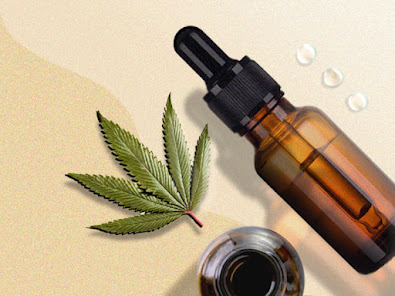
Lots of people view drug addiction as a disease that requires healing. Lots of people suffering from substance abuse see their lives coming to a stall. Medical marijuana legalization, however, has seen to the utilization of medical marijuana to treat the untreatable. Research made proves that medical marijuana can be utilized to treat drug addiction. The study showed that cannabis did not direct to any physical dependency and hence more advanced than one other drugs. A few of the drug addictions individuals have include addiction to alcohol and opioid substances. The question, therefore, falls how effective medical marijuana is in treating these drug addictions. A few of the reasons medical marijuana is known as active include;

Marijuana's insufficient dependency properties
Medical marijuana is scientifically noted for its benefit in reducing chronic pains experienced by patients' various conditions. Patients thc vape oil for sale, therefore, use medical marijuana to treat their conditions in addition to the opioid side effects such as for instance nausea. Such patients reported that the utilization of medical cannabis reduced their opioid dose or substituted the drug entirely.
Pain could be the core reason why patients seek pain-relieving alternatives. Opioid substances including heroin are generally readily available and prescribed to patients. These medicines consumption is supposed for shorter time lengths depending on the doctor's prescription. However, some patients wind up taking them with out a physician's prescription. Some also consume a larger quantity than prescribed. This overdosing, consequently, makes these patients have a tolerance to the pain-relieving effects generated by the opioids. Subsequently, the patients see a need to increasing the dosage and wind up having a dependency on the drug for pain relief.
Marijuana has been classified as a schedule-1 drug. Not surprisingly, research doesn't identify marijuana to possess any habit-forming properties. In reality, the long-term aftereffects of marijuana on the body continue to be unidentified.
Marijuana acts as an alternative for hard drugs and alcohol
Medical marijuana studies demonstrate that the recently legalized drug can serve as a substitute to other hard substances. Amanda Reiman conducts an instance study on methamphetamine users seeking to apply harm reduction in San Francisco. Amanda is the writer in the Harm Reduction Journal 2009 study cannabis as an alternative for alcohol and other drugs. In her case study, the methamphetamine users admitted that marijuana use gave them mindfulness. The users, therefore, would elect to stone and sleep instead of taking meth.
The utilization of medical cannabis also generated the reduction usage of other drug substances such as for instance tobacco, opioids in addition to alcohol. For example, patients who which were addicted to alcohol confessed that medical cannabis had manageable symptoms, unlike alcohol. Also, unlike tobacco and opioids, marijuana studies don't show signs of drug addiction and dependability by users.
Studies indicate that the injection of Tetrahydrocannabinol (THC) assisted the user in eliminating dependency on the hard drug substances. The THC also enhanced mindfulness and put the patient capable where they could evaluate their lives. Therefore, many drug addicts who embarked on cannabis as cure showed faster treatment. Many deaths caused by hard drug use like opioids also reduced subsequently in states that legalized marijuana. Thus medical cannabis is an effective substitute for the hard drugs and alcohol too.
Marijuana helps in withdrawal stages of the hard drugs
Did you realize that chances of retrogressing to hard drug use through the withdrawal stage are minimal for medical marijuana users? Well, a few of the withdrawal symptoms experienced by these hard drugs like heroin include nausea. The addicts might also experience trembling, insufficient sleep and a great many other withdrawal conditions. Medical marijuana, on one other hand, is well-known to treat such conditions by inducing sleep and appetite. Therefore, medical cannabis is highly recommended for treating drug addiction. It's typically a movement from one drug with harmful effects to one that does not have habit-forming properties.
Medical marijuana proves beneficial as it has psychoactive properties. With too little relapse, drug addiction is reduced. The reason why a majority of users fall back is due to the severe withdrawals. Withdrawals may be both painful and uncomfortable to the users. Medical cannabis thus proves useful in drug addiction treatment. Moreover, medical marijuana doesn't contain any withdrawal symptoms when used responsibly and conservatively.
Medical marijuana is legalized for treating many diseases including cancer, anxiety and other chronic related diseases. However, with marijuana being classified as a schedule-1 drug, a barrier seems to have been created. This classification limits further research on the old drug's full potential and capabilities. Not surprisingly, folks are fast appreciating the advantages that come with the utilization of medical cannabis. Moreover, folks are getting excited about the implementation of recreational marijuana use. This application will see to the simplified accessibility of the amusing drug.